An Anthology of Iberian Lyric Poetry 1400-1700: A Journey Through the Sounds of the Iberian Peninsula

The Iberian Peninsula, a land of rich cultural heritage, has been home to a vibrant poetic tradition for centuries. This anthology brings together a diverse collection of lyric poems from the Iberian Peninsula, composed between 1400 and 1700. These poems represent a wide range of themes and styles, offering readers a glimpse into the literary landscape of this region during a period of significant cultural and political transformation.
The Medieval Period (1400-1500)
The medieval period in the Iberian Peninsula was a time of great literary activity, with the emergence of various poetic forms and traditions. One of the most influential genres was the cantiga, a type of lyric poem that originated in Galicia and was popular throughout the Iberian Peninsula. Cantigas often celebrated love, nature, and the joys of life, and were often accompanied by music. Another popular genre was the villancico, a type of carol that was often performed during religious festivals.
5 out of 5
| Language | : | English |
| File size | : | 3857 KB |
| Text-to-Speech | : | Enabled |
| Screen Reader | : | Supported |
| Enhanced typesetting | : | Enabled |
| Print length | : | 432 pages |
| Lending | : | Enabled |
| Paperback | : | 39 pages |
| Item Weight | : | 2.56 ounces |
| Dimensions | : | 6 x 0.1 x 9 inches |
Cantiga de amigo (Cantiga of a friend)
Ai flores, ai flores do verde pino,
se sabedes novas do meu amigo,
ai flores, ai flores do verde ramo,
se sabedes novas do meu amado.
(Anonymous, 13th century)
Villancico (Carol)
Ya viene la vieja,
ya viene la vieja,
con su faldriquera.
Ya viene la vieja,
ya viene la vieja,
con su faldriquera.
(Anonymous, 15th century)
This villancico is a playful song about an old woman who is coming to town. The song's repetitive refrain creates a sense of anticipation and excitement, and the simple language evokes the festive atmosphere of a village celebration.
The Renaissance (1500-1600)
The Renaissance was a period of great intellectual and artistic flourishing in the Iberian Peninsula. This period saw the emergence of new poetic forms and styles, as well as a renewed interest in classical learning. One of the most influential poets of this period was Garcilaso de la Vega, who introduced the Italian sonnet to the Iberian Peninsula. The sonnet became a popular form for expressing love, beauty, and the human condition.
Sonnet XXIII
En tanto que de rosa y azucena
se muestra la color en vuestro gesto,
y que vuestro mirar ardiente, honesto,
con clara luz la tempestad serena;
y en tanto que el cabello, que en la vena
del oro se escogió, con vuelo presto,
por el hermoso cuello blanco, enhiesto,
el viento mueve, esparce y desordena;
coged de vuestra alegre primavera
el dulce fruto antes que el tiempo airado
cubra de nieve la hermosa cumbre.
Marchitará la rosa el viento helado,
todo lo mudará la edad ligera,
por no hacer mudanza en su costumbre.
(Garcilaso de la Vega, 16th century)
This sonnet is one of Garcilaso de la Vega's most famous poems. It is a passionate plea to a young woman to enjoy her youth and beauty before it fades away. The poem's
5 out of 5
| Language | : | English |
| File size | : | 3857 KB |
| Text-to-Speech | : | Enabled |
| Screen Reader | : | Supported |
| Enhanced typesetting | : | Enabled |
| Print length | : | 432 pages |
| Lending | : | Enabled |
| Paperback | : | 39 pages |
| Item Weight | : | 2.56 ounces |
| Dimensions | : | 6 x 0.1 x 9 inches |
Do you want to contribute by writing guest posts on this blog?
Please contact us and send us a resume of previous articles that you have written.
 Top Book
Top Book Novel
Novel Fiction
Fiction Nonfiction
Nonfiction Literature
Literature Paperback
Paperback Hardcover
Hardcover E-book
E-book Audiobook
Audiobook Bestseller
Bestseller Classic
Classic Mystery
Mystery Thriller
Thriller Romance
Romance Fantasy
Fantasy Science Fiction
Science Fiction Biography
Biography Memoir
Memoir Autobiography
Autobiography Poetry
Poetry Drama
Drama Historical Fiction
Historical Fiction Self-help
Self-help Young Adult
Young Adult Childrens Books
Childrens Books Graphic Novel
Graphic Novel Anthology
Anthology Series
Series Encyclopedia
Encyclopedia Reference
Reference Guidebook
Guidebook Textbook
Textbook Workbook
Workbook Journal
Journal Diary
Diary Manuscript
Manuscript Folio
Folio Pulp Fiction
Pulp Fiction Short Stories
Short Stories Fairy Tales
Fairy Tales Fables
Fables Mythology
Mythology Philosophy
Philosophy Religion
Religion Spirituality
Spirituality Essays
Essays Critique
Critique Commentary
Commentary Glossary
Glossary Bibliography
Bibliography Index
Index Table of Contents
Table of Contents Preface
Preface Introduction
Introduction Foreword
Foreword Afterword
Afterword Appendices
Appendices Annotations
Annotations Footnotes
Footnotes Epilogue
Epilogue Prologue
Prologue Chris Thompson
Chris Thompson Teresa Thompson
Teresa Thompson Scotty Scott
Scotty Scott Kenjiro Hata
Kenjiro Hata Marialisa Demora
Marialisa Demora Richardson Chaperon
Richardson Chaperon Cj Hernley
Cj Hernley Ron Collins
Ron Collins Liezel Graham
Liezel Graham Tony Batchelor
Tony Batchelor Gabriel Martz
Gabriel Martz Heather Gudenkauf
Heather Gudenkauf Peter Reinhart
Peter Reinhart Jack E Davis
Jack E Davis Vince Flynn
Vince Flynn Dana Thomas
Dana Thomas Leslie Schrock
Leslie Schrock Nick Duffell
Nick Duffell Jeffrey Allen Weesner
Jeffrey Allen Weesner Jake Adelstein
Jake Adelstein
Light bulbAdvertise smarter! Our strategic ad space ensures maximum exposure. Reserve your spot today!
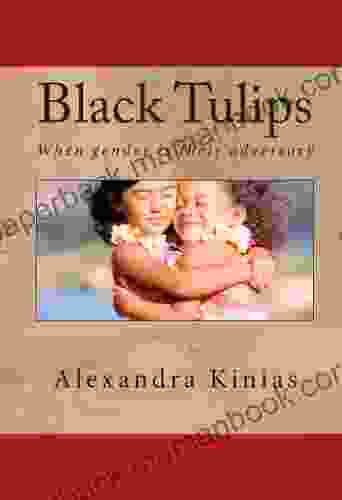
 Charles BukowskiBlack Tulips by Jerome Charyn: A Literary Masterpiece Exploring Identity,...
Charles BukowskiBlack Tulips by Jerome Charyn: A Literary Masterpiece Exploring Identity,...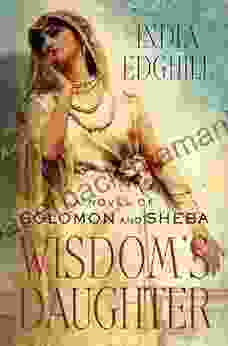
 Ian MitchellThe Epic Tale of Solomon and Sheba: A Journey of Love, Politics, and Divine...
Ian MitchellThe Epic Tale of Solomon and Sheba: A Journey of Love, Politics, and Divine...
 Oliver FosterArriving Safely at Financial Success: A Comprehensive Guide to Achieving Your...
Oliver FosterArriving Safely at Financial Success: A Comprehensive Guide to Achieving Your...
 Jett PowellThe Dons of Warrington Trilogy: A Gripping Crime Saga That Will Keep You on...
Jett PowellThe Dons of Warrington Trilogy: A Gripping Crime Saga That Will Keep You on... Jeffrey HayesFollow ·11.7k
Jeffrey HayesFollow ·11.7k Owen SimmonsFollow ·14.6k
Owen SimmonsFollow ·14.6k Ivan CoxFollow ·10.6k
Ivan CoxFollow ·10.6k Eli BrooksFollow ·8.4k
Eli BrooksFollow ·8.4k Oliver FosterFollow ·2.7k
Oliver FosterFollow ·2.7k Steve CarterFollow ·17k
Steve CarterFollow ·17k Arthur MasonFollow ·4.6k
Arthur MasonFollow ·4.6k Brian BellFollow ·19k
Brian BellFollow ·19k

 Jeremy Mitchell
Jeremy MitchellPlay We Now On Christmas Violin Christmas: A Heartfelt...
Play We Now On...

 Terry Bell
Terry BellTales from the Road: Confessions of an Atlanta Uber...
In the vibrant...
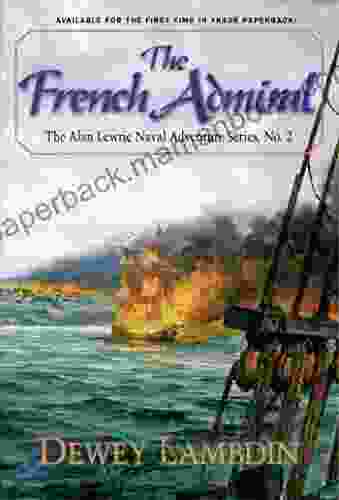
 Ervin Bell
Ervin BellThe French Admiral: A Gripping Naval Adventure with Alan...
In the vast expanse of...

 Henry David Thoreau
Henry David ThoreauCrochet Cozy Afghan Patterns: Crochet Weekend Afghan...
to Crochet...

 Orson Scott Card
Orson Scott CardAn Archaeological View Of The Industrialization Of North...
The industrialization of North America was a...
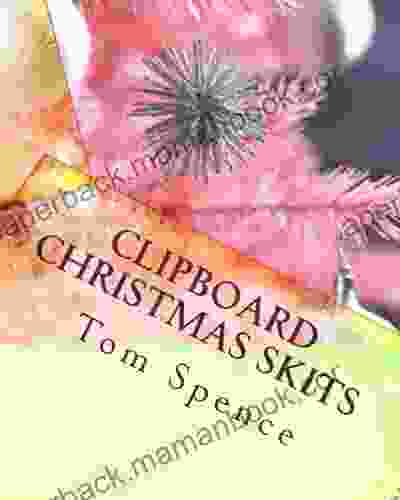
 Josh Carter
Josh CarterClipboard Christmas Skits by Tom Spence: A Festive...
A Christmas...
5 out of 5
| Language | : | English |
| File size | : | 3857 KB |
| Text-to-Speech | : | Enabled |
| Screen Reader | : | Supported |
| Enhanced typesetting | : | Enabled |
| Print length | : | 432 pages |
| Lending | : | Enabled |
| Paperback | : | 39 pages |
| Item Weight | : | 2.56 ounces |
| Dimensions | : | 6 x 0.1 x 9 inches |


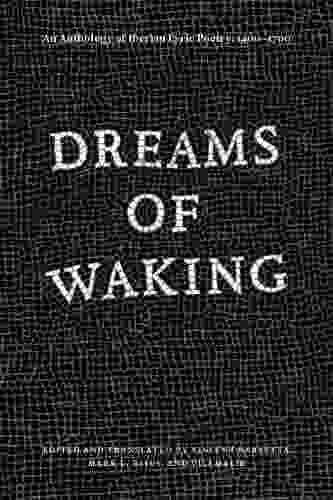
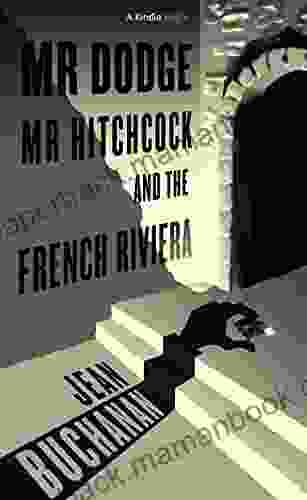

This cantiga de amigo, from the Cantigas de Santa Maria, is a lament for a lost love. The speaker, a young woman, asks the flowers if they have any news of her lover. The poem's simple yet evocative language captures the speaker's sense of longing and loneliness.